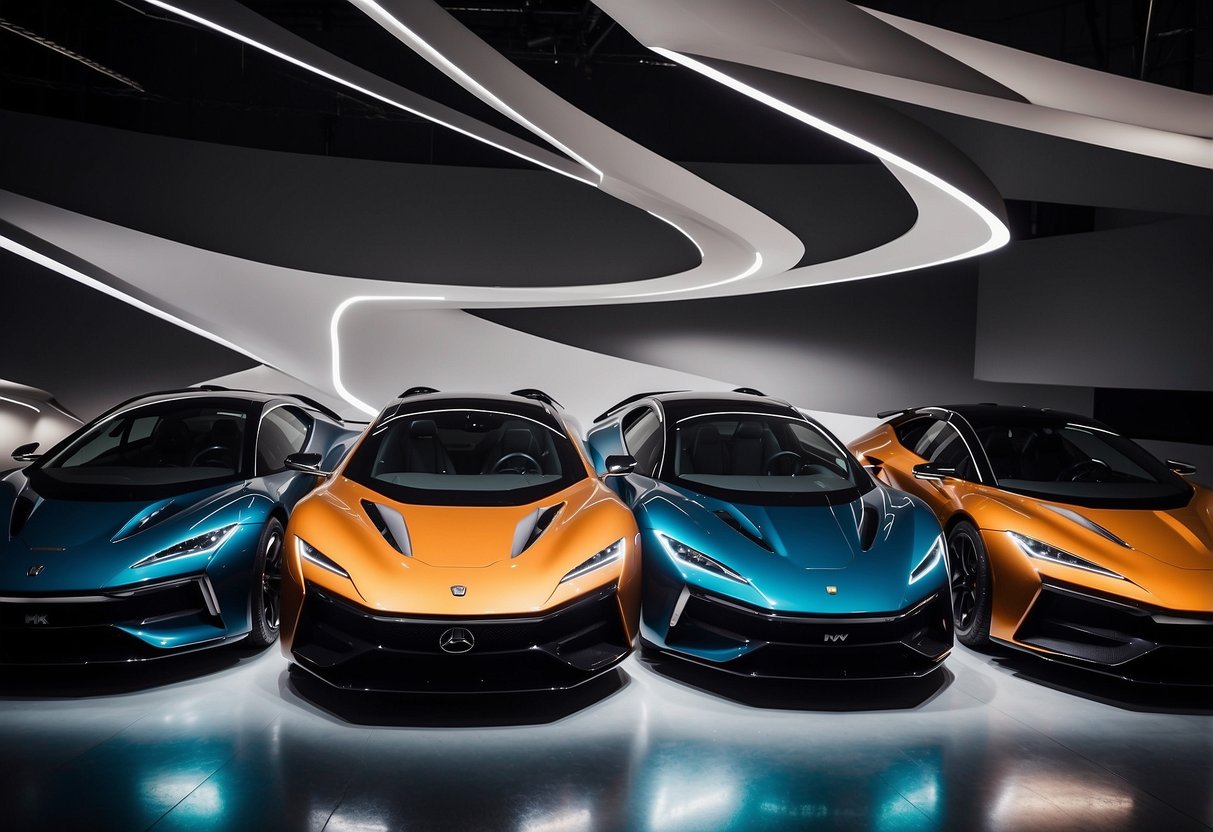
Regulatory and Ethical Considerations
Concept cars must navigate a complex landscape of global emission standards and autonomous vehicle legislation. These factors influence not only the design and functionality but also the market viability of these futuristic vehicles.
Global Emission Standards
Stringent global emission standards play a significant role in shaping the development of concept cars. Many countries, particularly in Europe and parts of Asia, are enforcing stricter emission regulations to combat climate change. Regulations such as Euro 6d and China 6b require manufacturers to innovate in areas like electric propulsion and hybrid technologies.
Car manufacturers must ensure their concept cars meet these regulations to succeed globally. Adhering to these standards can involve substantial research and development investments. Additionally, compliance can serve as a marketing advantage, demonstrating a commitment to sustainability.
Autonomous Vehicle Legislation
The integration of autonomous features in concept cars is subject to evolving autonomous vehicle legislation. Different countries have varying legal frameworks that regulate the testing and deployment of self-driving cars. In the United States, for example, states have different regulations regarding where and how these vehicles can operate.
In Europe, the EU’s General Safety Regulation mandates advanced safety features, impacting how autonomous systems are implemented. Regulatory compliance ensures not only legal operation but also public trust in autonomous technologies. It is crucial for manufacturers to stay abreast of these regulations to innovate effectively and ensure market readiness.
Notable Auto Shows and Expos
Public showcasing of concept cars often takes place at prestigious auto shows and expos.
One of the most famous events is the Geneva International Motor Show. Held in Switzerland, it is renowned for unveiling groundbreaking concepts. Car enthusiasts and industry experts alike flock to this show to witness the future of automotive design.
The North American International Auto Show (NAIAS) in Detroit is another major event. As a hub of the automotive industry, Detroit’s show is pivotal for car launches and concept reveals.
Another notable event is the Tokyo Motor Show. Known for its focus on advanced technology and futuristic design, this expo is a platform for Japanese automakers to exhibit their visionary ideas.
The Frankfurt Motor Show (IAA), located in Germany, is one of the largest auto shows worldwide. It offers a glimpse into the latest innovations and environmentally friendly designs from leading manufacturers.
Lastly, the Pebble Beach Concours d’Elegance in California is unique. While primarily a classic car show, it also features cutting-edge concept cars, blending history and the future.
These events provide essential opportunities for manufacturers to gauge reactions and for attendees to experience the latest in automotive innovation.
Looking Ahead: The Road to the Future
Concept cars act as a glimpse into the innovations automakers are planning for the upcoming years. They showcase advancements in technology, design, and sustainability. These vehicles often feature cutting-edge materials, autonomous driving capabilities, and futuristic designs.
Electric propulsion is a major trend. Carmakers are focusing on creating fully electric concept cars with impressive ranges. These cars highlight the commitment to reducing carbon footprints and embracing renewable energy sources.
Interior design is undergoing significant changes as well. Concepts frequently include minimalistic, tech-heavy cabins with large touchscreen interfaces. These interiors emphasize comfort and connectivity for the modern driver.
Safety is another crucial focus area. Advanced driver-assistance systems (ADAS) are integral to concept cars. These systems aim to improve road safety and reduce human error.
Autonomous driving remains a popular feature. Many concept vehicles include level 4 or 5 autonomy, hinting at a future where cars could drive themselves entirely. This technology aims to make driving more convenient and safe.
Sustainability is a key theme. Automakers are experimenting with eco-friendly materials, like recycled plastics and vegan leather. This approach reflects a growing emphasis on environmental responsibility.
In terms of aesthetics, designers are pushing the boundaries. Sleek, aerodynamic shapes and bold color schemes often characterize these cars. This approach not only enhances performance but also captures the imagination of potential buyers.
The road to the future is paved with these groundbreaking innovations. Automakers are continuously working to refine these concepts and bring them closer to production reality. These vehicles represent a bold step into a more advanced and sustainable automotive era.



